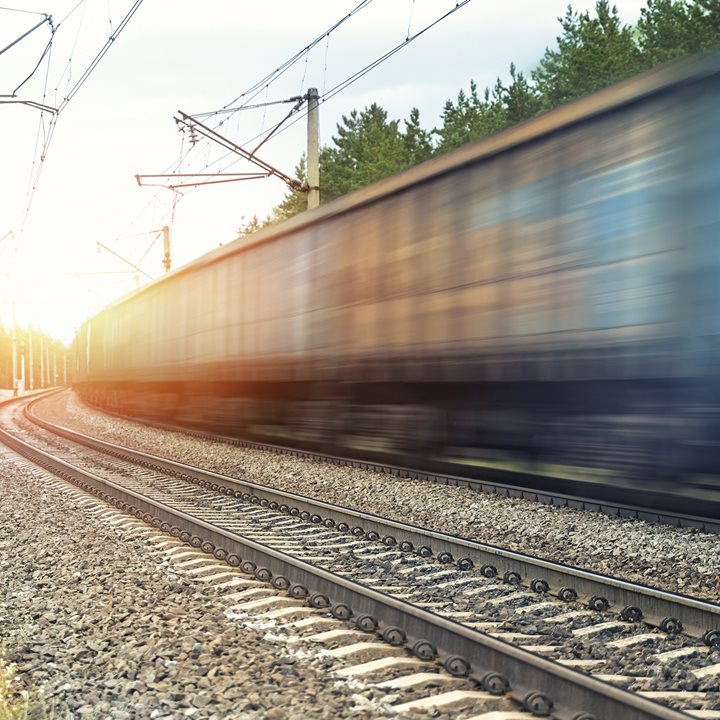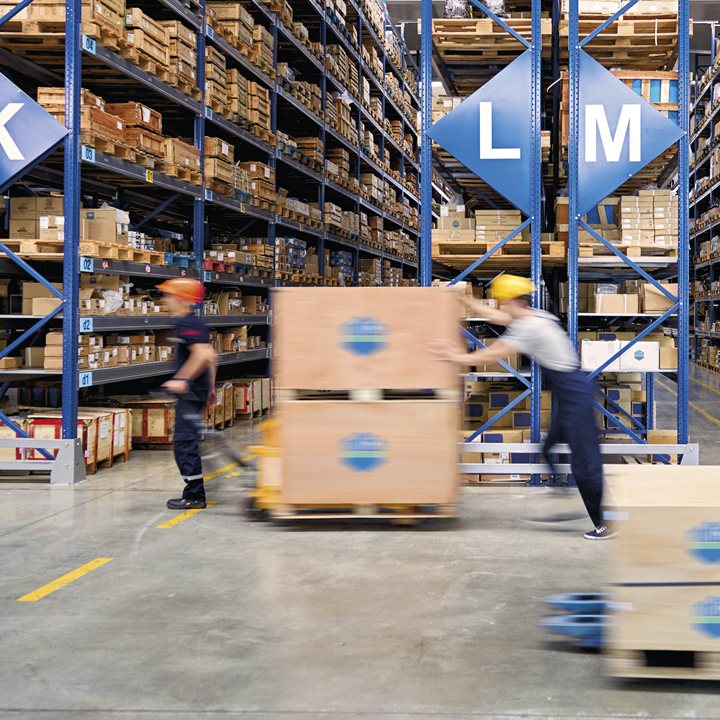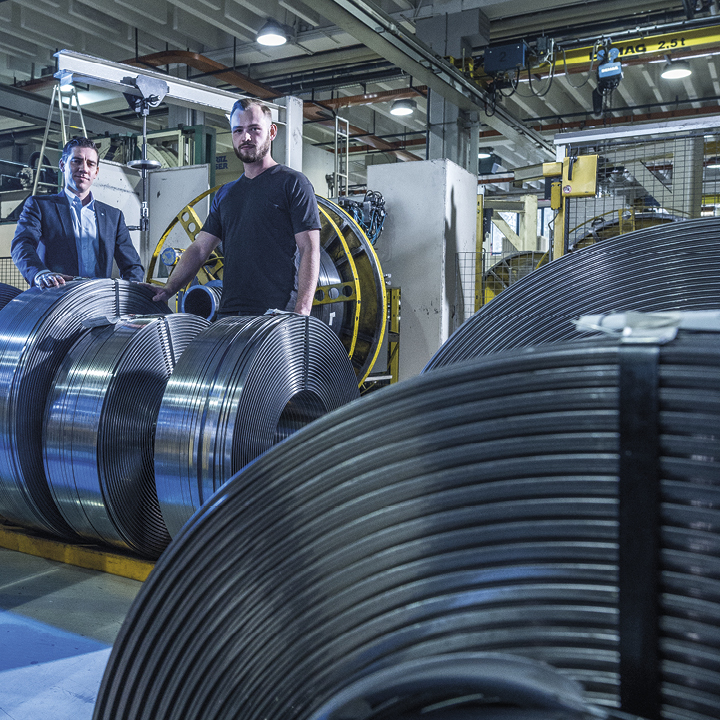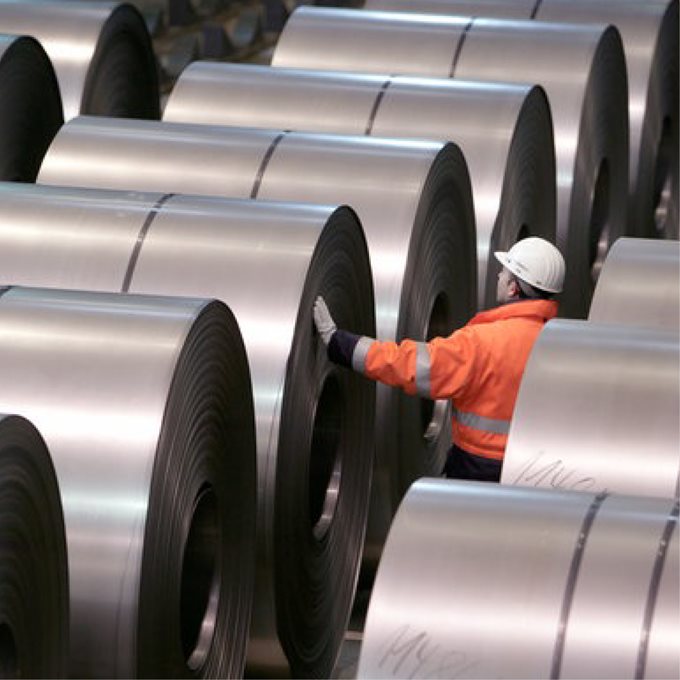The last two years have been challenging for the entire construction industry. Despite the volatile environment, we continued to focus on sustainability in our corporate strategy and came another step closer to our goal of a clean supply chain.
Resources

Climate-friendly transport
When delivering our raw materials, we pay attention to resource-saving logistics, for example through intermodal transport for our steel deliveries: In 2023, almost half of all steel deliveries were transported primarily by rail.
Intermodal transport also saved around 18,000 kg of CO₂ when transporting our fine zinc alloys.

Local before global
We rely on long-term partnerships with sustainable suppliers who also document this: through certifications, climate-friendly production processes or the use of recycling technology.
We also focus on short transport routes. We source 80% of our purchases of production materials from within the country or our neighbouring countries (Germany, Switzerland, Italy or the Czech Republic). We deliberately exclude global sourcing for bulky items.

Reduction of emissions
The use of sustainable raw materials in particular allows us to make our products more environmentally friendly. We follow developments and innovations on the market and incorporate them into our products and production processes whenever it makes sense to do so.
We continuously sample alternative materials with a low carbon footprint and test them for our applications: For example, zinc, which consists of 70 percent recycled material, aluminium, which is produced using hydropower, or steel, which is obtained from sponge iron instead of blast furnaces – thus protecting the environment.
Recycling at the centre of our supply and value chain
Innovative recycling not only avoids waste, it also reduces the consumption of primary raw materials. In addition, far less energy is often required for the production of secondary raw materials, which significantly improves the carbon footprint.

As steel is a particularly effective lever for ecological improvement at MACO due to its high purchasing volume, this is our focus. One of the initiatives: The raw material that one of our largest suppliers processes into steel for us has a scrap content of 99 per cent.
We are also focussing on fine zinc alloys as a material: We want to reduce CO₂ emissions by up to 25 per cent by 2024. We are therefore stepping up our collaboration with a company that offers CO₂-reduced material and are establishing it as a future supplier. Compared to the materials from our previous suppliers, this material causes only a seventh of the CO₂ emissions (instead of 2,800 kg, only 387 kg of CO₂ emissions per tonne).